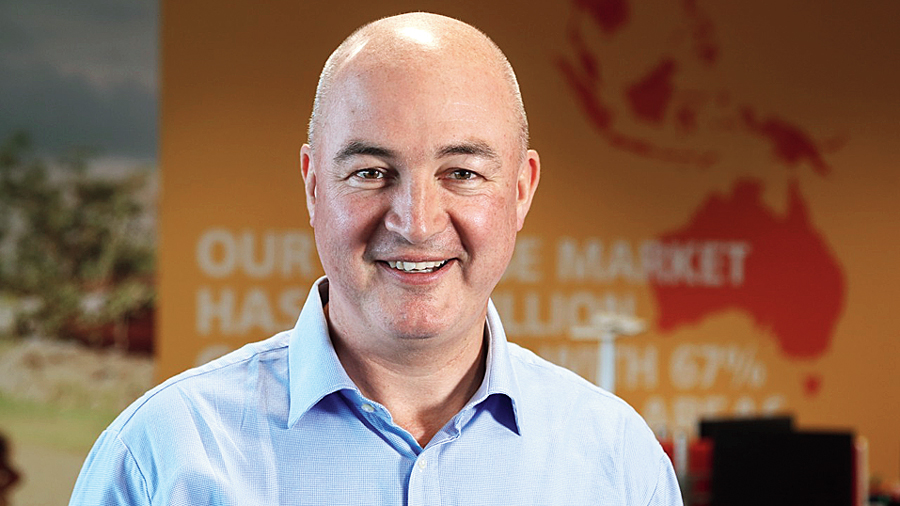Unilever has said its employees will never go back to a five-day working week even after the Covid-19 pandemic abates.
“We anticipate never going back to five days a week in the office; that seems very old-fashioned now,” Unilever chief executive Alan Jope has said at the Reuters Next conference.
The Euro 22 billion London-headquartered consumer goods multinational — maker of Dove soap, Lipton tea and Ben & Jerry’s ice cream — is looking to embrace a hybrid work model that several global technology giants have been advocating as the new normal.
Jope said he did not expect office workers in Western Europe and North America to return to work at least till April. He added that Unilever would use a “hybrid model” of working between homes and offices after that and indicated that “permanent changes” were expected for many of its 150,000 global employees.
The Unilever chief said the multinational is already testing a four-day work week this year in New Zealand and will assess the results before deciding whether to extend the practice globally.
It could not be immediately ascertained whether Unilever’s subsidiary in India would also permanently switch to the hybrid work environment. At present, a very large part of the local workforce has been working out of home.
Vaccine stand
The Unilever boss said the multinational would strongly encourage its employees to get vaccinated against the coronavirus as soon as possible but “in a very principled way”.
“I don’t want any of my employees to be jumping the queue on frontline medical workers or vulnerable people,” he said.
“We will not be mandating vaccines for anyone. We don’t believe that is right,” he said.
Jope also floated the idea of buying vaccine shots to share with people in poorer countries.
“There are one or two countries in the developing world, where the public purse is not so strong and they have approached us on a ‘buy two, keep one’ basis,” the Unilever chief executive said.
“So imagine in a country where we purchase 200,000 vaccine doses, we donate 100,000 to public efforts and we use the rest for our employees and their families,” Jope said.
Emerging markets contribute about 60 per cent to Unilever’s revenue.
Several companies have broached the Modi government with a request to be allowed to use their corporate social responsibility (CSR) funds for the vaccination programme.
The Centre has refused to allow the CSR money for vaccinating employees but remains open to using it for others though no firm decision has been taken as yet.
On Wednesday, the ministry of corporate affairs permitted the use of CSR funds for public outreach programmes related to Covid-19 vaccination but stopped short of using the money to fund the vaccination drive.
Since the pandemic struck in March, a significant chunk of India Inc's employees has been working from home. But with the rollout of the vaccine, the big question hanging in the air is whether companies will ever return to the pre-Covid work environment.
The work from home (WFH) model has been working well with many companies suggesting that it has had no adverse impact on productivity with the added benefit of big cost savings.
So far, only firms in India’s IT services sector have confirmed that they will follow this hybrid model even in a post-vaccine world. For instance, in the case of Infosys 97 per cent of its 2,49,312 employees in the globe are now working from home.
The percentage of its employees in India who are working from home is 98.3 per cent.
At its conference call after the third quarter results on Wednesday, Infosys CEO Salil Parekh indicated that work from home in some form is here to stay. Last month, the company had said it will prefer a flexible "hybrid" work model going ahead in view of uncertainty around the pandemic situation and allow employees work from home or office depending on the condition.











